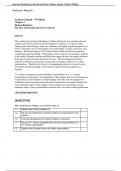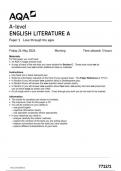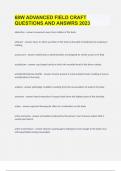Exam (elaborations)
Human Relations 4th Edition By Marie Dalton Dawn Hoyle, Marie Watts (Instructor Manual)
- Course
- Institution
Human Relations 4e Marie Dalton Dawn Hoyle, Marie Watts (Instructor Manual) Human Relations 4e Marie Dalton Dawn Hoyle, Marie Watts (Instructor Manual)
[Show more]





